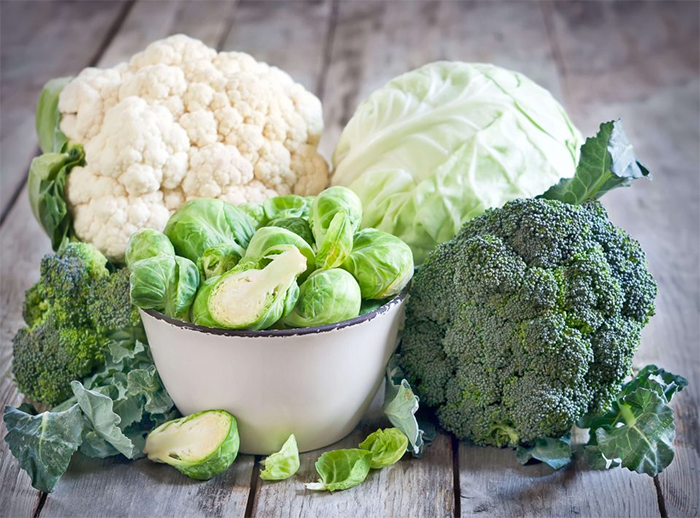The basic rule of weight loss is that you must eat fewer calories than your body requires. That doesn’t necessarily mean you must eat less food though, as certain foods like fruits and vegetables are known to be low in calories.
You can eat the same amount of fruits and veggies as their water and fibre add volume. They’re also naturally low in fat and can fill you up. In fact, what plays a bigger part in your diet is the method of cooking.
Did you know the wrong cooking method may cause a loss of nutrients and vitamins? That renders your healthy eating useless in your weight loss journey.
For more insight regarding the matter, we asked HealthifyMe‘s Lead Nutritionist Melanie Anthonysamy for more information. Keep reading to find out why the cooking method matters and which vegetables are good for weight loss.
Boiling your vegetables could lead to nutrient loss

One of the widely used methods for cooking vegetables, boiling is not only easy and convenient, but it also doesn’t require the use of any oil, so there are fewer calories and no fat.
Anthonysamy tells us that water-soluble nutrients such as vitamin B and C can be lost during the boiling process, which affects nutrient availability in vegetables after cooking.
You’ll want to keep a close eye on the period of time and amount of water used when you boil your veggies too – this ensures they’re cooked optimally to prevent nutrient and flavour loss.
It also severely reduces the effects of anti-cancer components

Cruciferous vegetables tend to come from the Brassica genus family such as broccoli, brussels sprouts, cabbage, cauliflower, and more.
These vegetables are known for their anti-cancer properties and nearly all are excellent sources of vitamins C and K, folate, potassium, fibre, and magnesium.
Anthonysamy explains that what’s unique about cruciferous vegetables is that they are rich in glucosinolates, which are compounds that contain sulfur – this is responsible for their pungent aromas and spicy or bitter taste.
She also mentions that boiling has been found to severely reduce their anti-cancer effects as compared to other cooking methods.
Spinach needs to be cooked at high temperatures

Have you ever watched Popeye? If you have, then you’d have no trouble remembering that spinach is packed with a load of nutrients. Just a single bite contains fibre, vitamin A, C, and K, iron, folate, and potassium.
According to Anthonysamy, spinach is loaded with oxalic acid, which can prevent the body from absorbing iron and calcium from the vegetable. Spinach must therefore be cooked at high temperatures to break down the oxalic acid to increase the absorbability of iron and calcium.
In this way, the cooking method can greatly influence nutrient availability. She recommends blanching spinach in hot water for a minute and then immediately transferring it into cold water and then draining it to ensure its nutrients are not lost.
Cooking methods for vegetables that will help in weight loss

We’re always looking out for ways to curb our calories, so we had to ask Anthonysamy to recommend some methods to cook our vegetables so we can definitely lose pounds.
Spinach is a nutrient powerhouse, a versatile vegetable, and is low in calories. She recommends sautéing or blanching it to turn them into purees and smoothies. Broccoli is another versatile vegetable that is high in fibre and most suitable roasted or steamed.
Squash is low in fat and calories and high in fibre, which helps our body feel full for longer. Anthonysamy explains it is a great alternative ingredient to use when cooking conventional spaghetti dishes, such as baked squash spaghetti with vegetables.
Sweet potato has higher fibre than white potato and is naturally sweet and versatile. Suggested dishes include roasted sweet potato bowl, sweet potato pizza, and sweet potato hash.
These vegetables can be cooked or boiled for a long time

Despite what we’ve talked about, there are actually many vegetables that can be cooked or boiled for a long time.
Anthonysamy says that there are many vegetables that need to be cooked for a longer time to increase nutrient availability and absorbability.
Harder vegetables including carrots, parsnips, pumpkin, turnips, and yams can be cooked for as long as 12 to 15 minutes as it helps to soften them and retain their nutrients.
If you’re exhausted after a long day of work, popping in some carrots or pumpkin into a pot and then leaving them to watch your favourite dramas is certainly okay.
Eating your favourite vegetables may not be sufficient for weight loss, as every vegetable has its own efficient method of cooking to allow for better nutrient absorption.
It may be time to look into the best ways to cook your favourites and how they retain their nutrients, which means you get the opportunity to experiment with new recipes.
Or you could go the convenient route and keep boiling your vegetables. Just be sure to pick the ‘correct’ ones to boil so you won’t lose out on any nutrients.
We’re already planning our next meal with all of these tips – are you?
Featured image credit: SafeFood


